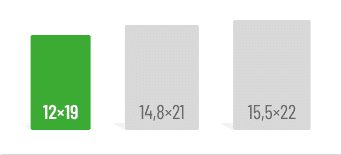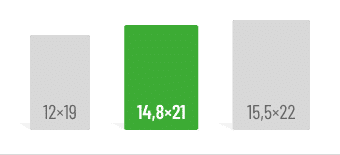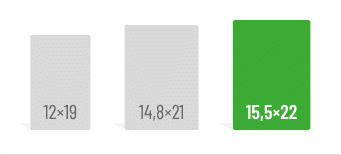First things first:
- Who can apply for BAföG? Any student at universities, technical colleges, or distance learning universities, and under certain conditions, foreign students and refugees as well.
- The subsidy consists of a grant and an interest-free loan, with monthly amounts of up to €934.
- Submit the BAföG application online via “BAföG-Digital” or in writing at least 6-8 weeks before the start of the semester.
- Only half of the BAföG has to be repaid, a maximum of €10,010, in monthly installments of €130 over 20 years.
What is BAföG?
BAföG stands for “Federal Education and Training Assistance Act.” It’s a government-funded social benefit that aims to provide access to education or studies, regardless of one’s social or financial background, especially if parents are unable to finance it. This article focuses on BAföG for university students.
BAföG is distributed by the Office for Educational Support at your university’s student services department, which is typically located in the same building. Each office only serves its assigned university, so you can apply for BAföG after enrolling—though some exceptions exist in some federal states. BAföG cannot be applied for retroactively.
Historical overview
1957: First educational grant according to the “Honnef model”, was awarded only to students at universities and equivalent colleges with particularly good performance.
1971: BAföG was introduced as a 100% grant, establishing a legal right to education funding that could be claimed in court.
Until 2015: The government covered 65% of BAföG costs, and the federal states paid 35%.
From 2015: The government has taken over 100% of the financing.
2021: 50 years of BAföG! Studies reveal fewer people receiving funding, but higher funding amounts.
Since 1972, more than 4.8 million people have financed their education with Bafög.
Who can apply for BAföG?
Anyone studying at a university, technical college, academy, or recognized distance learning institution can apply for BAföG. Required internships within a study program are also funded. Eligibility depends on citizenship, residency status, age, suitability, income, and assets. The exemption limit for personal assets is €15,000 if you’re under 30, or €45,000 if you’re over 30. Your income, as well as that of your parents and partner, is also considered, and the age limit to start studies is 45. Foreign students can receive BAföG if they are long-term residents and integrated in Germany. Under certain conditions, refugees can also qualify.
What types of education are funded?
Generally, only one education up to a vocational degree is funded, with exceptions such as a Master’s after a Bachelor’s, provided the Master’s is started before age 35. Postgraduate courses are also supported if you haven’t obtained another primary degree alongside your Bachelor’s.
BAföG abroad is possible for up to one year. For stays in the EU or Switzerland, the entire program can be funded. Different BAföG offices handle applications depending on the destination country, and applications should be submitted at least six months in advance.
BAföG without parental support is only possible in exceptional cases, as parents are generally required to support their children financially. Independent BAföG is available under specific conditions, such as for evening high school students.
Funding details and special regulations
To continue receiving BAföG after your fourth semester, you must show academic progress, typically by meeting ECTS credit requirements that prove steady study progression rather than grades. Even if you apply for BAföG for the first time after four semesters, you must prove sufficient progress.
Siblings can also impact the amount of BAföG awarded, as a higher exemption on parental income may apply depending on siblings’ income. If you need to acquire knowledge in languages other than German, English, French, or Latin, your maximum funding period can be extended by one semester per language. Funding is also extended if studies are delayed due to disability, pregnancy, caring for a child under 14, or caring for a close relative in need (minimum care level 3). Serving on university committees can also extend funding. Additionally, extensions may apply if you fail an exam for the first time or due to other serious reasons.
Funding amounts and conditions
BAföG is awarded as a 50% grant and a 50% interest-free loan. Some components, like foreign tuition fees (up to €5,600 per study year), are full grants and don’t need to be repaid. The monthly amount depends on your educational institution and living situation and is calculated as a flat rate.
There are full and partial grants: In 2021, 42.8% of students received a full grant (€633 to €934 per month), while 57.2% received a partial grant. Full grants are awarded if you’ve worked full-time for a certain period or if your parents have low income. Partial grants require parental support based on their income. The monthly requirement is currently €511 if you live with your parents and €812 if you live independently. With health and care insurance supplements, the maximum amount is €934 (raised from €861 in 2023). Parental and partner income also affects the calculated requirement. In 2023, the parental income allowance increased by 20.75% (from €2,000 to €2,415), expanding BAföG eligibility.
For each child under 14 living with you, there’s a childcare allowance of €160, which doesn’t need to be repaid and doesn’t affect other social benefits. Students over 30 may receive up to an additional €84 depending on their situation.
Funding duration
Funding lasts according to the standard study period, but extensions are possible for verifiable BAföG-related reasons. Important: funding starts the month you apply, with no retroactive payments for earlier months, even if studies already began. So, apply at least the month your studies start!
Funding ends upon graduation, program completion, study interruption, or reaching the maximum funding period based on the standard study duration. Once your final results are received, funding ends no later than two months after your last exam. BAföG rates, allowances, and social allowances are reviewed and adjusted every two years.
According to the official BAföG statistics, sponsored students received an average of €579 per month in 2021.
Repayment of the loan
In principle, it is always worthwhile to apply, as only half of the amount has to be repaid. One half is thus intended as a gift, the other as an interest-free loan. In total, you have to pay back a maximum of €10,010 of the standard funding.
Repayment generally starts five years after the last BAföG payment (not the end of studies). The loan portion consists of up to 77 monthly installments of €130 over 20 years. Exceptions apply for extended study periods or a second course change, where BAföG may only be offered as a bank loan, which is fully repayable with interest. Discounts are available for those who repay the loan in full before the repayment start date or make larger early repayments of at least €500.
How do I apply?
Applications must be submitted in writing to the responsible Office for Educational Assistance. You can submit the application forms by post or electronically. Nationwide, there is the uniform online application “BAföG-Digital” via the portal of the federal and state governments. Simply create a user account and send the application directly, without an additional signature. There are also private service providers who will apply for you, but there are often additional costs for this.
Note: Submit your application at least 6-8 weeks before the start of the semester in order to receive the funding in time.
Do you like our magazine? Then sign up for our GRIN newsletter now!







